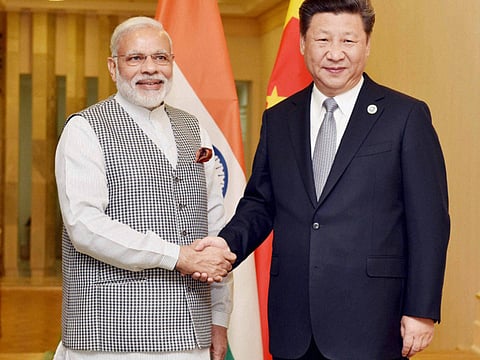India should have been given a seat at the NSG
The country needs clean fuel to fulfil its commitment to reduce carbon emissions as it needs to light billions of homes

The agony of failed diplomacy, of not being included as a member of the exclusive Nuclear Suppliers Group (NSG), hit New Delhi last week, after China, along with a few other countries, successfully blocked New Delhi’s bid in Seoul.
The NSG came into being in 1975, after India’s first peaceful nuclear explosion in 1974 under the then prime minister Indira Gandhi. The West, seething with anger and in retaliation, formed the NSG to control nuclear assets from countries they believed to be rogue nations.
India has come a long way since then. It conducted nuclear tests again in 1998. And 10 years later, in 2008, it was the first non-NPT country to receive a waiver to conduct nuclear commerce with the rest of the world from both, the International Atomic Energy Agency (IAEA) and the NSG, despite being a non-signatory to the Non-Proliferation Treaty (NPT).
India continues to steadfastly oppose the NPT as a discriminatory treaty, as it recognises the five nations who are also permanent members of the United Nations Security Council as nuclear-powered states.
It is this very NPT that was used by China to foul India’s bid last week, citing that a non-signatory country cannot be a member of NSG. The truth though remains that China’s real reason for objecting to India’s inclusion has been self-righteous, of being the only Asian country to hold the high table among nations.
Another reason that influenced the Chinese decision was Pakistan, which is its all-weather ally, as it believes allowing India membership will upset the fragile nuclear balance between New Delhi and Islamabad.
Given such vehement opposition, India’s chances for a seat at the world table were dim from the very start as the bloc of 48 member-nations works through consensus. Even if one of them objects to India’s membership, the bid stands foiled.
Pakistan has termed India’s failure to secure a seat at the NSG a major success of its foreign policy, as it believes that India, once included in the NSG, would not allow its western neighbour a seat at the table. During high-wired negotiations, India even offered an olive branch to China, saying that it will not object to the inclusion of other non-NPT signatories into the NSG.
However, China knows that given Pakistan’s poor track record of maintaining nuclear secrets, the United States will oppose the idea and since it cannot secure a seat for its ally, it decided to stop India’s inclusion.
China and many of its allies though did not see the larger picture and the global importance of giving India a seat at the NSG. India needs the fuel to develop nuclear power plants to power the millions of homes that dot its vast landscape. If it takes the route of doing so through coal-fired power plants, it will harm the environment drastically as the country is already the third-largest emitter of greenhouse gases.
India will also not be able to ratify the Paris climate agreement anytime soon (the agreement has been a cornerstone of US President Barack Obama’s legacy).
“You cannot take it in both hands. Give some take some,” was the comment from a senior diplomat post India’s foiled bid.
India, by not ratifying the Paris agreement, is not only putting pressure on the world leaders, but making subtle comments on its domestic needs, which any democratically elected government cannot ignore. The country needs power and in an era where non-renewable sources threat the very sustenance of humankind, nuclear power is a major source of clean energy.
India plans to build 15,000 MW of nuclear power by 2020. Though building nuclear reactors is no secret for a country that is capable of placing several satellites into orbit at one go, an NSG membership would have given the country access to superior technology and triggered manufacturing and innovation within India, enabling it to produce “low-cost reactors” and sell it to its neighbours in south-east Asia. It would have put India on a firmer footing to propose the idea of plutonium trade for its thorium programme that has been waiting for some time now. An early implementation of the thorium technology will give India enormous energy independence and security.
Of course there are arguments against nuclear power, both within and outside India, as many believe that post the 2008 waiver, an NSG membership should be least sought-after as India is free to trade in civil nuclear technology any way. However, membership to a cartel like NSG is not about trade, but a place on the high table of nations that India certainly deserves, given the non-proliferation record it has achieved over the years — even without having signed the NPT.
Archisman Dinda is a journalist based in Kolkata, India.



